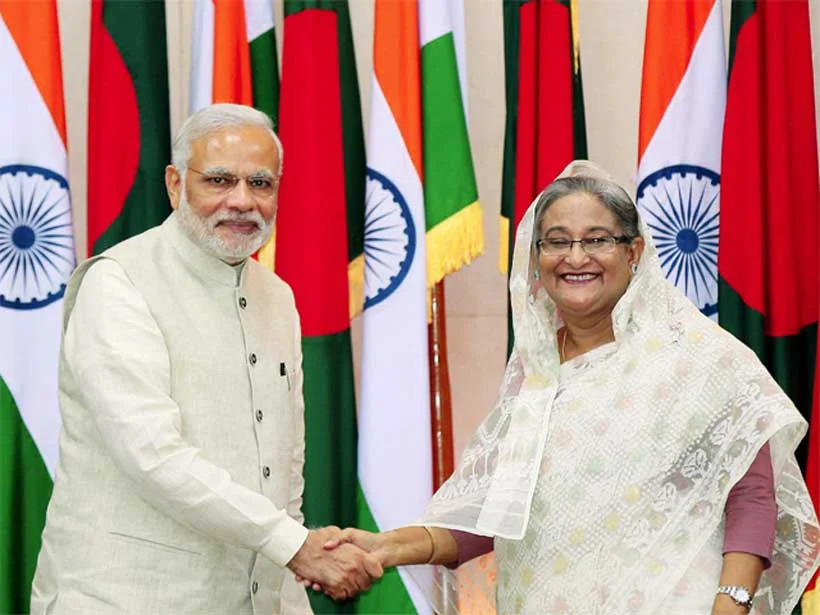India and Bangladesh share a unique bond forged through history, culture, and geopolitics. As neighboring countries, their destinies are often intertwined. The current crisis in Bangladesh, marked by political instability and economic challenges, has raised questions about the role India can play in supporting its ally. This article explores the potential avenues through which India can assist Bangladesh in navigating these turbulent times.
Historical Context
The relationship between India and Bangladesh is deeply rooted in history. In 1971, India played a crucial role in Bangladesh’s liberation war against Pakistan, leading to the creation of an independent Bangladesh. This historical alliance has fostered strong bilateral ties, with India providing substantial support in various sectors over the decades.
Current Crisis in Bangladesh
Political Instability
Bangladesh is currently grappling with significant political instability. The government, led by the Awami League, faces allegations of corruption, human rights abuses, and electoral fraud. Protests and clashes between political factions have intensified, leading to widespread unrest and a fragile political environment.
Economic Challenges
Economically, Bangladesh is struggling with high inflation, unemployment, and a widening trade deficit. The COVID-19 pandemic has exacerbated these issues, impacting key sectors like garment manufacturing, which is a cornerstone of the Bangladeshi economy. The economic strain has further fueled social discontent and unrest.
India’s Strategic Interests
India’s interest in a stable and prosperous Bangladesh is multifaceted. A stable Bangladesh contributes to regional security and stability, which is crucial for India’s own security concerns in its northeastern states. Additionally, strong economic ties with Bangladesh can benefit India by providing access to markets and trade routes.
Potential Areas of Assistance
Diplomatic Support
India can leverage its diplomatic channels to facilitate dialogue between the conflicting political factions in Bangladesh. Encouraging a peaceful resolution through negotiations and offering to mediate can help de-escalate tensions and promote political stability.
Economic Aid and Trade
India can provide economic assistance to Bangladesh through financial aid packages, low-interest loans, and investment in key sectors. Enhancing bilateral trade by reducing tariffs and providing market access to Bangladeshi goods can also boost the Bangladeshi economy.
Infrastructure Development
Collaborative infrastructure projects can enhance connectivity and economic growth. India can invest in transportation, energy, and communication infrastructure in Bangladesh, which can create jobs and stimulate economic activity.
Humanitarian Aid
During times of crisis, humanitarian aid is crucial. India can extend support through the provision of medical supplies, food aid, and other essential resources. This can help alleviate immediate suffering and build goodwill among the Bangladeshi populace.
Regional Cooperation
BIMSTEC and SAARC
Regional organizations like BIMSTEC (Bay of Bengal Initiative for Multi-Sectoral Technical and Economic Cooperation) and SAARC (South Asian Association for Regional Cooperation) provide platforms for multilateral cooperation. India can work through these organizations to address broader regional issues affecting Bangladesh and other member states.
Counterterrorism and Security
Joint efforts in counterterrorism and security can enhance regional stability. India and Bangladesh can collaborate on intelligence sharing, border security, and counterterrorism operations to combat threats posed by extremist groups.
Challenges and Considerations
Sovereignty and Non-Interference
India must balance its support with respect for Bangladesh’s sovereignty. Any intervention must be carefully calibrated to avoid perceptions of interference in internal affairs, which could backfire and strain relations.
Domestic Constraints
India’s ability to assist is also influenced by its own domestic constraints. Economic challenges, political considerations, and public opinion within India can impact the extent and nature of support provided to Bangladesh.
Geopolitical Dynamics
The geopolitical landscape in South Asia is complex, with multiple stakeholders, including China, having interests in Bangladesh. India’s support must be strategically aligned to counterbalance other influences while promoting regional stability.
Case Studies of Past Interventions
Sri Lanka
India’s involvement in Sri Lanka’s civil conflict in the 1980s and 1990s offers valuable lessons. While intended to support stability, the intervention faced significant challenges and criticisms. This underscores the importance of a well-considered approach in Bangladesh.
Nepal
India’s support to Nepal during the 2015 earthquake through Operation Maitri showcased India’s capacity for effective humanitarian assistance. Similar efforts can be replicated in Bangladesh during natural disasters or humanitarian crises.
Conclusion
India has a pivotal role to play in supporting Bangladesh during its current crisis. Through diplomatic efforts, economic aid, infrastructure development, and regional cooperation, India can help stabilize its special ally. However, this support must be carefully balanced with respect for Bangladesh’s sovereignty and an understanding of the complex geopolitical dynamics at play. By doing so, India can not only assist Bangladesh but also contribute to regional stability and prosperity.
Read More: Can All-Night Drinking Zones Revitalize City Economies?
